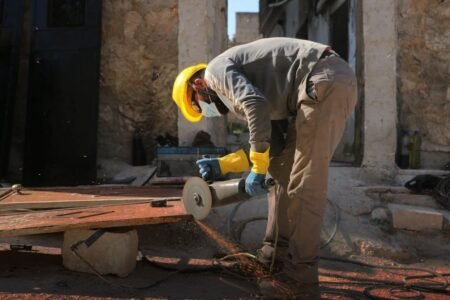The European Commission adopted on 18 September a proposal for an EU regulation that improves the conditions for animals at the time of slaughter or killing and ensures that they are humanely treated. To simplify the existing legislation and bring it into line with food hygiene regulations, the proposal integrates welfare considerations into the design of slaughterhouses and requires the regular monitoring of the efficiency of stunning techniques. Slaughterhouses must appoint a specific person responsible for animal welfare and ensure that their staff is properly trained and certified. Manufacturers of stunning equipment will have to provide instructions for ensuring proper animal welfare and a number of technical standards are updated in view of scientific progress. EU Member States will have to create research based centres to provide permanent and competent support to official inspectors. The competent authorities will also be more accountable to the public when they perform mass killings in case of contagious diseases. Every year, nearly 360 million pigs, sheep, goats and cattle as well as several billion poultry are killed in EU slaughterhouses for their meat. In addition, about 25 million animals are killed for their fur. The control of contagious diseases may also require the culling of thousands to millions of other animals.
Advertisement
Community legislation to protect animals at the time of killing already exists (Directive 93/119/EC) but is outdated in many respects. The Commission proposal contains several important changes:
- It is a Regulation
This means that it is directly applicable, with no delays and no room for distortions. It facilitates a harmonised application in the EU and provides a level playing field for the operators concerned.
- Increased operator responsibility
Each operator would have to know what they are doing through the use of a standard operating procedure. Such methodology is not new for slaughterhouses as it is already required and in place for food safety (the so-called HACCP system = Hazard Analysis Critical Control Point). But it is new to require standardized procedures for animal welfare.
Operators are required to evaluate the efficiency of their stunning method through animal based indicators. As a consequence, stunned animals will have to be regularly monitored to ensure that they do not regain consciousness before slaughter.
Each slaughterhouse will have to appoint an Animal Welfare Officer who will be accountable for implementing the animal welfare measures. This will not replace the official inspection and there will be a derogation for small slaughterhouses.
Furthermore, the proposal requires manufacturers of stunning equipment to provide instructions on the use of their equipment, on how to monitor their efficiency and keep them in order.
- Training and research on animal welfare.
The proposal requires staff handling animals in slaughterhouses to possess a certificate of competence regarding the welfare aspects of their tasks. The certificate will be valid for a maximum of five years and submitted to independent examination by accredited bodies.
The proposal also aims at creating national centres of reference on animal welfare to provide technical support for officials working in slaughterhouses. Although there are some research centres in many Member States, the results of their research and their technical competence is not sufficiently available to official inspectors. As a result, inspectors have often difficulties in assessing complex stunning systems. The proposal will remedy this important issue.
- New requirements for killing for disease control purposes
Culling animals on a large scale is sometimes the only tool to control highly contagious diseases (such as avian influenza or foot and mouth disease). As this affects public spending (and often the Community budget), the proposal aims at making the competent authority performing such killing more accountable to the public regarding the welfare of the animals culled. In particular, the proposal provides for better planning, supervision and reporting. Use of animal welfare unfriendly methods of killing will no longer be allowed except under exceptional circumstances (such as to protect human health or in case of an uncontrollable animal disease).
- Updated standards
The proposal introduces many technical changes.
For example, the scope of stunning or killing methods is more strictly defined, and minimum electrical parameters are provided. Another example is when gas stunning is used for birds it has to be irreversible.
A number of technical changes will concern the construction, layout and equipment of slaughterhouses such as the lairage facilities or the electrical stunning equipment.
No, but the large majority of them are covered.
The proposal concerns the killing of animals in slaughterhouses as well as those kept for farming purposes. This includes the killing of fur animals, of male day-old chicks (of laying hens breeds) or other killing taking place in farms. In particular it concerns the killing for disease control purposes (as occurred, for example, in the UK for the control of Foot and Mouth Disease).
Animals killed due to, or following, scientific experiments are covered by a specific Directive presently also under revision.
Animals killed under other circumstances (hunting, bullfighting, stray dogs or cats in shelters, animals in the wild, etc.) are not part of the scope of this proposal. Those areas are covered by national legislation and Community competences are either limited (hunting) or excluded.
Every year nearly 360 million pigs, sheep, goats and cattle as well as several billion poultry are killed in EU slaughterhouses.
The European fur industry adds another 25 million animals to the figure.
Hatcheries kill around 330 millions day-old-chicks.
The control of contagious diseases may also require the killing of thousands to millions of animals.
Yes, just as today.
The proposal requires slaughterhouses in third countries exporting meat to the EU to comply with similar standards to those in the proposal. This will ensure a level playing field for all slaughterhouses, within or outside the EU, establishing fair competition.
The Commission has performed an extensive impact assessment in order to evaluate the extent to which the measures proposed will affect companies and the Member States. This impact assessment is publicly available.
This impact assessment is based on a specific socio-economic study carried out by an external consultant. In addition, this proposal has taken into consideration a large consultation of all stakeholders and has been designed to minimize the possible costs.
For example, the requirement to appoint an Animal Welfare Officer is not obligatory for small slaughterhouses as such a measure would not be proportionate to the problem (proper coordination on animal welfare is not actually an issue in a small establishment). Other measures have been granted a transitional period for implementation to allow operators or Member States to adapt progressively. This is the case for the standards applicable to the design and fixed equipments of slaughterhouses and for the implementation of the certificate of competence applicable to staff in slaughterhouses.
However it should be underlined that a number of measures proposed here are already applied by some companies (on a voluntary basis) or by some Member States (as national legislation).
The proposal does not ban any major method of stunning presently in use. However, it limits the possibility to use certain methods.
The Commission decided not to ban the use of the waterbath stunner for poultry despite its welfare disadvantages.
The use of carbon dioxide will be still permitted despite the scientists opinion on its aversiveness for animals.
The reason for maintaining the possibility to use those methods of stunning is the lack of practical alternatives under commercial conditions.
In the case of the waterbath for poultry, alternatives exist (use of gas) but are presently not developed for the small or medium size slaughterhouses, which represent a very important number of establishments in Europe.
Similarly the use of carbon dioxide can not be rejected at present as there is no commercially viable alternative for certain species like pig or fur animals. In addition, it is a still an important technique for the mass killing of poultry.







